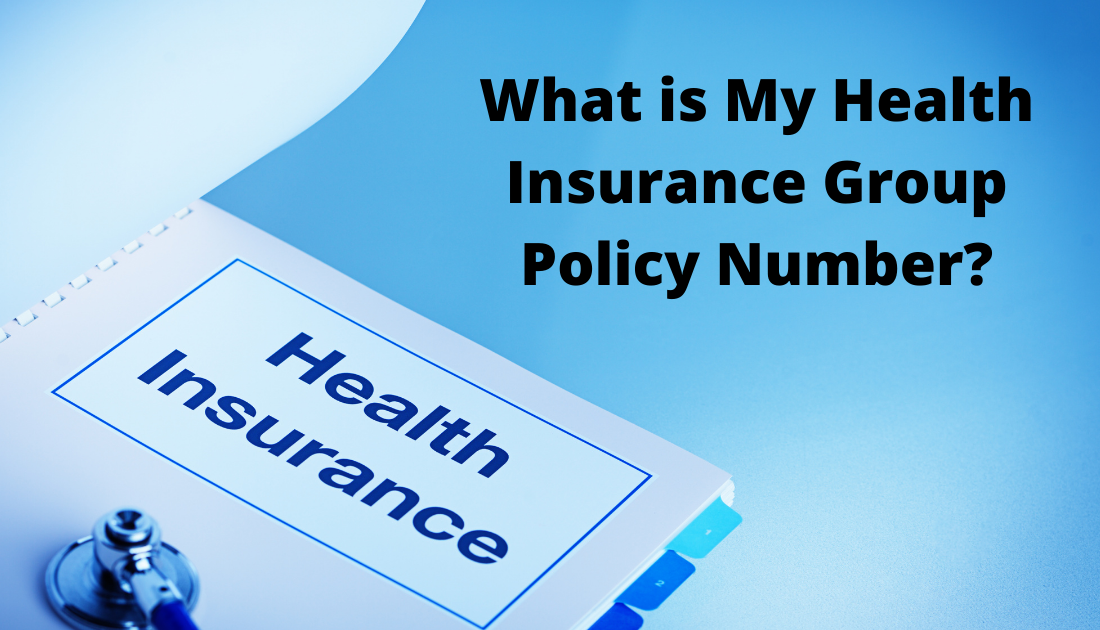What is My Health Insurance Group Policy Number?

Just the Essentials...
- Group health insurance is essentially another term for employer-sponsored health insurance.
- Group health insurance plans offer coverage as part of an employer-sponsored benefits package.
- Multiple Employer Welfare Arrangements (MEWA) are group medical insurance plans offered collectively by several organizations that have connected to provide health insurance coverage to their employees.
- After you enroll for health insurance, your provider gives you a policy number to identify your registered account.
What is a Group Health Insurance Plan?
When you accept a new job, you’re often given a benefits package as part of your salary plan. Your employee benefits package will typically include employer-sponsored health insurance. This type of health insurance plan is also known as a group health insurance plan.
Under ACA regulations, employers with 50 or more full-time employees, or the equivalent in part-time employees, are required to provide health insurance to 95% of their full-time employees. If these employers refuse to provide group health insurance, they face a strong IRS penalty. Employers who employ less than 50 full-time employees are not required to provide group health insurance, but many opt to do so anyway.
For the plan to work, your employer contributes a certain amount toward your premiums. You also contribute a certain amount, which is deducted from your pay at set periods. How much of the responsibility for premium payment is split between employer and employee depends on provider requirements, and can differ depending on the size and nature of your employee-sponsored group health insurance plan.
Are you in need of health insurance coverage? Enter your zip code above into our FREE tool to compare health insurance plans in your area.
Small-Employer Group Health Insurance Coverage
Most small businesses are not required to provide group health insurance coverage. Businesses are classified as “small” if they employ anywhere between two and 50 individuals. Though they are not obligated to do so, many small businesses today opt to provide employees with some form of health insurance coverage.
Large-Employer Group Health Insurance Coverage
Businesses who employ 50 or more individuals are classified as “large”, and are required under the ACA to offer group health insurance plans to their employees. These plans are often Health Maintenance Organization (HMO) plans, but instead of limiting the network, they are required to make Point of Service (POS) options available so that you have access to doctors that are out of the plan’s network.
HMO plans are the most popular type of plan for many employer-sponsored group health insurance plans.
Large-employer group health insurance plans sometimes lack lifetime or annual cover limits. However, they cannot refuse you coverage because of pre-existing health conditions.
Multiple Employer Welfare Arrangement Plans
Multiple Employer Welfare Arrangements (MEWA) are medical insurance plans offered by a collective of organizations that have connected to provide health insurance coverage to their respective employees. MEWA health plans are regulated by the US Department of Labor and local government authorities.
Collective MEWA health plans must be licensed by the local government unless a certified health insurance company assumes MEWA liability for all employees. Under a MEWA, employees are provided with a health insurance card to access medical services at selected providers within their designated locations. These cards include both a group policy number and an individual policy number for referencing and billing.
What is My Policy Number, and Where Do I Find It?
When you enroll in a health insurance plan, whether it’s an individual plan or an employer-sponsored group health insurance plan, you’ll receive a policy number. The purpose of your health insurance policy number is to make it easier for your provider to identify your account.
Your policy number also acts as a unique identifier for any dependents included on your policy on your insurance card. Policy numbers vary from group numbers, but employee policy numbers on a group health insurance card are related to your group policy number.
Without the correct policy number, healthcare providers may not be able to bill your health insurance provider. In order to access coverage benefits, you must be able to provide your correct health insurance policy number.
In any case, your health insurance policy number can be found on the ID card sent to you by your health insurance provider. On an ID card sent through an employer-sponsored plan, your group policy number and personal ID number will be visible on your card. Both numbers can also be found in any documents sent to you by your health insurance provider.
What if I Lose My Medical ID Card?
All of the information associated with your group health insurance policy number is documented on your Medical ID card. This means that if you lose your Medical ID card somehow, you lose your most convenient way to provide your healthcare provider with all of your policy information.
If you lose or misplace your card, you should reach out to your health insurance provider immediately so that they can cancel your current card and individual number and send you a replacement with a new individual number. Though your individual policy number will change, you’ll retain the same plan and group policy number.
It may take some time for your replacement card to arrive. If you need access to health care under your group policy before your replacement card arrives, the hospital will need to contact your health insurance provider in order to confirm that you are enrolled in their group health plan. Your insurer should be able to confirm and verify your policy number for eligibility of services and billing.
Is a Group Health Insurance Plan Right for Me?
If you’re not interested in purchasing a personal health insurance plan, enrolling in an employer-sponsored group health insurance plan is a great way to make sure you’re able to cover medical expenses that arise. Premiums for group health insurance plans through an employer are often less expensive than if you purchase a health insurance plan on your own.
When you enroll in your employer’s group health insurance plan, remember that your group policy number is key to obtaining the services that you need. Under some state laws, insurance companies must promptly honor claims made by their clients. If you’re enrolled in a group health insurance plan, these claims are filed on your behalf by your employer. That group policy number is vital to ensuring that your claims are paid.
Looking to change health insurance providers? Compare health insurance plans for FREE in your area by entering your zip code!
Key Resources:
“Where Can I Get Help Switching Health Insurance Companies?”
“Is Your Employer Required to Provide Health Insurance Coverage?”
“Health Maintenance Organization (HMO) Plans”
“Point of Service (POS) Plans”
“Small and Large Business Health Insurance: State & Federal Roles”
